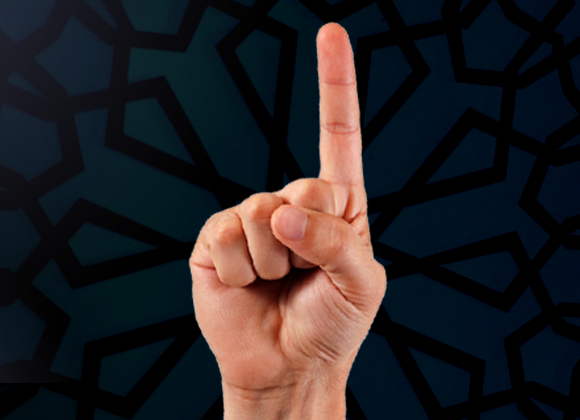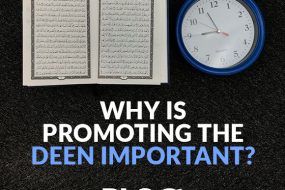
Everyone exerts efforts in various ways, shapes and forms to benefit themselves and others. Some of what we do is greater than other things depending on where Allah![]() made us excel. It is like a farmer who is producing exotic fruits and he has some trees which are special, which he reserves for himself and does not take to the market; while some are standard marketable produce and others are below par than what he would want to send to the market. Allah
made us excel. It is like a farmer who is producing exotic fruits and he has some trees which are special, which he reserves for himself and does not take to the market; while some are standard marketable produce and others are below par than what he would want to send to the market. Allah![]() grants us special blessings in some areas and makes us deficient in others. And sometimes, there is nothing we can do to change it beyond accepting it, appreciating Allah
grants us special blessings in some areas and makes us deficient in others. And sometimes, there is nothing we can do to change it beyond accepting it, appreciating Allah![]() ‘s gifts and limitations and making the best regardless.
‘s gifts and limitations and making the best regardless.
These things can all amount to voluntary charity (sadaqah) if done with the right intention, which is something we should be in the habit of doing on a daily basis.
Ibn ‘Abbas ![]() said, “There are 360 joints and each of them owes sadaqa every single day. Every good word is sadaqa. A man’s helping his brother is sadaqa. A drink of water which he gives is sadaqa. Removing something harmful from the road is sadaqa.” [Sahih (Al-Albani). Al-Adab Al-Mufrad 422.]
said, “There are 360 joints and each of them owes sadaqa every single day. Every good word is sadaqa. A man’s helping his brother is sadaqa. A drink of water which he gives is sadaqa. Removing something harmful from the road is sadaqa.” [Sahih (Al-Albani). Al-Adab Al-Mufrad 422.] ![]()
The Sweet and Perfect Fruit
These efforts are for the family, especially one’s spouse, parents, children and relatives in order of relation followed by close friends. These are those who could appreciate it and will appreciate it the most. The neighbors and community one lives in would come next.
It was narrated from Ibn ‘Abbas ![]() that: The Prophet ﷺ said: “The best of you is the one who is best to his wife, and I am the best of you to my wives.” [Grade : Hasan (Darussalam). Vol. 3, Book 9, Hadith 1977.]
that: The Prophet ﷺ said: “The best of you is the one who is best to his wife, and I am the best of you to my wives.” [Grade : Hasan (Darussalam). Vol. 3, Book 9, Hadith 1977.]
Abu Mas’ud ![]() reported Allah’s Messenger ﷺ as saying: “When a Muslim spends on his family seeking reward for it from Allah, it counts for him as sadaqa.” [Sahih Muslim 1002 a.]
reported Allah’s Messenger ﷺ as saying: “When a Muslim spends on his family seeking reward for it from Allah, it counts for him as sadaqa.” [Sahih Muslim 1002 a.]
The Normal and Average Labor Products
These are marketable efforts which have produced something which benefits and gives someone an opportunity to use it for sadaqah for anyone. The “cream of the crop” so to speak would generally not be appreciated in this context which is why one should reserve those for those who would.
The sunnah shows us the Prophet ﷺ’s most liked sadaqah. Sa’id reported Sa’d ![]() came to the Prophet ﷺ and asked him which sadaqah do you like most? He replied, “Water.” [Hasan (Al-Albani). Sunan Abi Dawud 1679.]
came to the Prophet ﷺ and asked him which sadaqah do you like most? He replied, “Water.” [Hasan (Al-Albani). Sunan Abi Dawud 1679.]
This is our general category of sadaqah which we normally think about when we use the term. It’s greatest when done for the poor and the needy or those who are orphans or those suffering the most incredible hardships. Allah![]() says in the Qur’an:
says in the Qur’an:
“And what can make you know what is [breaking through] the difficult pass? It is the freeing of a slave. Or feeding on a day of severe hunger. An orphan of near relationship. Or a needy person in misery.” (Al-Balad, 90:12-16).
You do not need to give a high prized item which they would likely not appreciate and is better given to close family. In fact, they would much more appreciate clothing, basic food and water than anything else. Islamic charities are out there providing and doing these services constantly, even responding immediately to crises and disasters and are a great way to do this through cash if it is the only option available to you.
The Below Par
These are that which are producing something which cannot directly benefit people but still indirectly benefit them. Perhaps one feeds the goats with those not marketable but healthy apples or uses the sick ones to compost the earth. We should never be wasteful when we can turn waste into charity or that which can benefit, even if it is through the environment. Waste in anything is in fact forbidden. There is an old famous saying that “One man’s garbage is another man’s treasure” and thus, we should not make haste in deeming something to be waste if it could potentially be of use. The consumerism in the world has created a waste consumption model that is unhealthy for the community and environment and violates our duty to Allah.
Abu Huraira ![]() reported Allah’s Messenger ﷺ as saying, “Verily Allah likes three things for you and He disapproves three things for you. He is pleased with you that you worship Him and associate nothing with Him, that you hold fast to the rope of Allah, and be not scattered; and He disapproves for you irrelevant talk, persistent questioning and the wasting of wealth.” [ Sahih Muslim 1715 a.]
reported Allah’s Messenger ﷺ as saying, “Verily Allah likes three things for you and He disapproves three things for you. He is pleased with you that you worship Him and associate nothing with Him, that you hold fast to the rope of Allah, and be not scattered; and He disapproves for you irrelevant talk, persistent questioning and the wasting of wealth.” [ Sahih Muslim 1715 a.]
Nowadays, it could even be giving your neighbor a ride to work every morning with your over-sized luxury sports utility vehicle, which is burning through gas at fever pitch or taking damaged sewn items to the tailor, broken shoes to a cobbler, or contracting people of various trade crafts who you can employ to prevent waste as opposed to throwing away something perhaps totally functional and only mildly damaged and buying a new item. Certainly, we could be questioned about these objectionable uses of wealth on the Day of Judgment.
Tying it Together
So let us think for a moment about the great blessings in life we are not sharing with those closest to us. Let us think about those normal things we excel at which we could be using to give others who are in need of some extra help, expecting nothing in return. And let us think about anything we might be wasting and how we could more productively and efficiently use it. Remember that there is a context for what, where, when and how we perform different acts and levels of sadaqah. Understanding this context will help us avoid pitfalls. Certainly, you cannot satisfy everyone but success is in satisfying Allah ![]() by following these guidelines He
by following these guidelines He ![]() has sent to us.
has sent to us.







